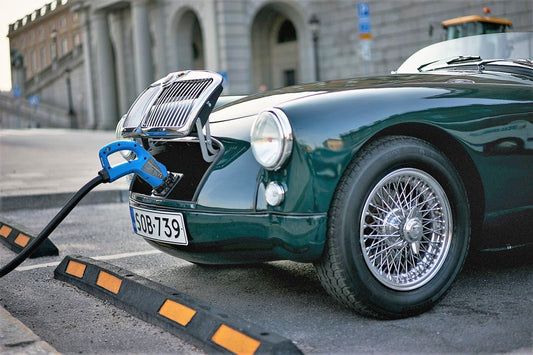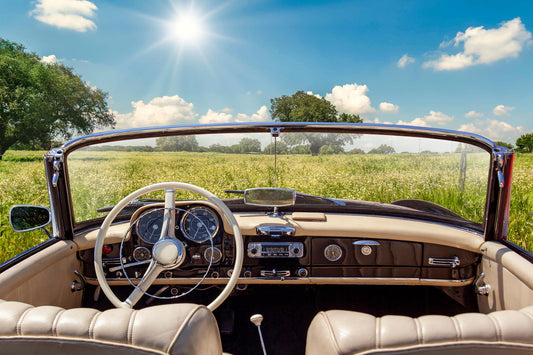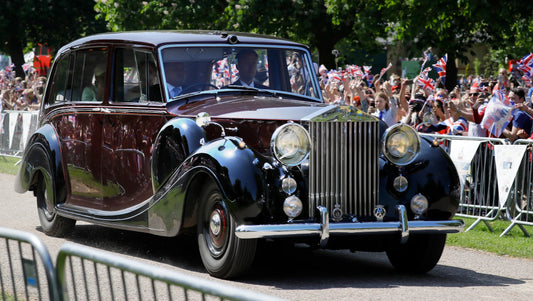The world of classic cars is a vibrant and passionate community, one that is passionate about preserving the history and legacy of the vehicles that paved the way for the modern automobile. From the sleek lines of a classic sports car to the powerful rumble of a vintage muscle car, these vehicles evoke a sense of nostalgia and excitement that is unmatched in the world of transportation.
However, with the growing concern about the impact of fossil fuels on the environment, many classic car enthusiasts are left wondering what the future holds for their beloved vehicles. With the shift towards alternative fuels and electrification, it's a valid question to ask: what will happen to classic cars and the fuels they run on in the years to come?
In this blog post, we'll explore the world of classic car fuels, including the challenges and opportunities that lie ahead as the automotive industry moves towards a more sustainable future.
The History of Classic Car Fuels
In the early days of the automobile, gasoline was the fuel of choice for most vehicles. As cars became more sophisticated and the demand for more power grew, high-octane gasoline was developed to meet the needs of high-performance engines. This trend continued throughout the 20th century, with gasoline being the go-to fuel for most vehicles, including classic cars.
In the 1970s, however, the energy crisis brought about a shift in the automotive industry. With gasoline prices skyrocketing, consumers began to look for alternative fuels, leading to the development of diesel engines and the rise of diesel-powered vehicles.
While diesel engines were more fuel-efficient than their gasoline counterparts, they were not without their drawbacks. In the late 1990s and early 2000s, diesel engines came under fire for their emission levels, leading to stricter regulations and a decline in diesel-powered vehicles.
Despite this, diesel engines have remained a popular choice for classic cars, particularly for those who are looking for a more fuel-efficient and eco-friendly option. While diesel fuel may not have the same nostalgic appeal as gasoline, its practical benefits have made it an attractive choice for classic car enthusiasts who are looking to reduce their impact on the environment.
The Future of Classic Car Fuels
In recent years, the automotive industry has undergone a profound transformation, with the rise of electric vehicles (EVs) and the push towards alternative fuels. This shift has raised a number of questions about the future of classic cars and the fuels they run on.
One of the biggest concerns for classic car enthusiasts is the potential impact that alternative fuels and electrification could have on their vehicles. With EVs being powered by batteries and alternative fuels like ethanol and biofuels being used in modern engines, there are concerns that these fuels could damage classic car engines or even render them useless.
However, it's important to note that classic cars are designed to run on gasoline, and while alternative fuels and electrification may be the way of the future, they are unlikely to become the standard for classic cars any time soon.
In addition to the potential impact on classic car engines, there are also concerns about the availability of gasoline in the years to come. With the push towards alternative fuels and electrification, it's possible that gasoline could become less available or more expensive, making it more difficult for classic car enthusiasts to keep their vehicles running.
However, it's important to note that gasoline is still a widely available and affordable fuel, and there are no indications that this will change anytime soon. In addition, there are a number of organizations and communities dedicated to preserving the history and legacy of classic cars, and they are likely to advocate for the continued availability of gasoline for these vehicles.
Opportunities for Classic Cars and Alternative Fuels
While gasoline is still the preferred fuel for classic cars, there are a growing number of classic car enthusiasts who are embracing alternative fuels as a way to reduce their environmental impact. In particular, biofuels like ethanol and biodiesel are gaining popularity, as they offer a more sustainable and eco-friendly option.
Ethanol is a biofuel made from corn, sugarcane, and other renewable resources, and it can be used as a gasoline substitute or additive. When used as an additive, ethanol can help improve the efficiency of gasoline engines and reduce emissions. Biodiesel, on the other hand, is made from recycled vegetable oils and can be used as a direct replacement for diesel fuel.
While biofuels like ethanol and biodiesel are more environmentally friendly than gasoline and diesel, they do come with some challenges. For example, ethanol can be more difficult to find than gasoline, and it can also be more expensive. Biodiesel can also be difficult to find, and it may not be compatible with all diesel engines.
Despite these challenges, many classic car enthusiasts are embracing alternative fuels as a way to reduce their impact on the environment and keep their vehicles running for years to come. With the continued development of biofuels and other alternative fuels, it's likely that we will see even more classic car enthusiasts making the switch in the years to come.
The Future of Classic Cars and Fuel
As the automotive industry continues to evolve and new technologies emerge, the future of classic cars and the fuels they run on remains uncertain. However, one thing is certain: the passion and commitment of classic car enthusiasts will ensure that these vehicles remain a beloved and important part of our automotive heritage for generations to come.
Whether you're a classic car enthusiast, a collector, or simply someone who appreciates the beauty and nostalgia of these vehicles, it's important to stay informed about the latest developments in the world of classic car fuels. With the continued push towards alternative fuels and electrification, there is no doubt that the future of classic cars and the fuels they run on will be shaped by the needs and desires of the people who love them.
In conclusion, the future of classic cars and fuel is a complex and ever-changing landscape. While gasoline will likely remain the preferred fuel for classic cars for the foreseeable future, alternative fuels and electrification are playing an increasingly important role in the world of classic cars. With the continued development of new technologies and fuels, it's an exciting time to be a classic car enthusiast, and we look forward to seeing how the world of classic cars and fuel will evolve in the years to come.








